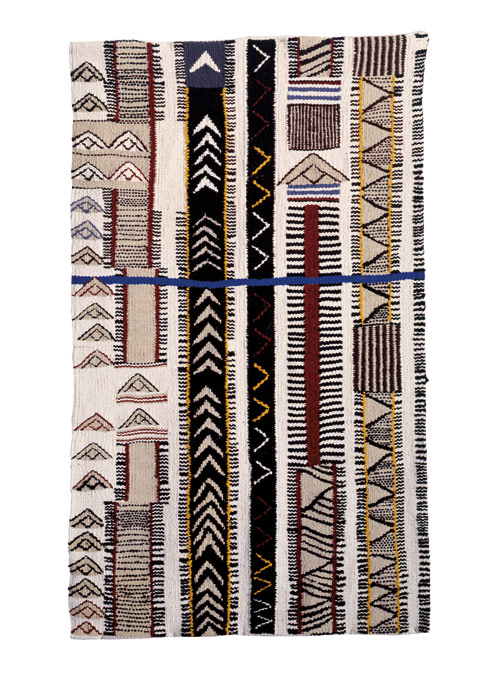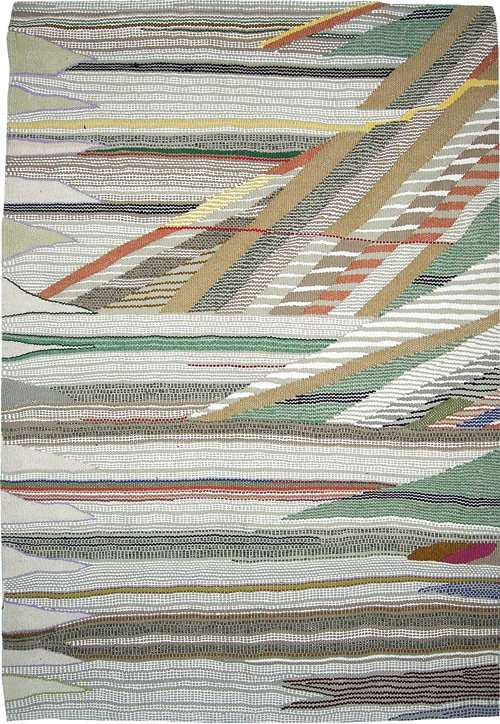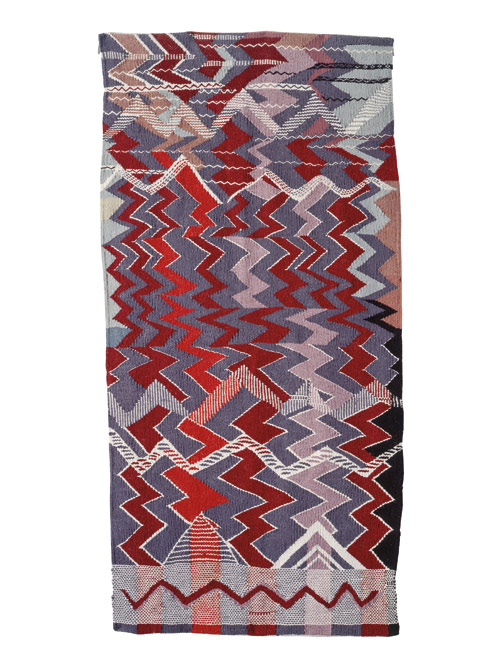Handira / Bert Flint / Granada
1997 / 1997-1998 / 2002
Teresa Lanceta
To weave is to interlace the threads on a warp with those of the weft following a specific pattern. It is a structural process that enables the simultaneous creation of object and language, of support and image, but, above all else, the weave is the human revelation of the arcane. This perspective on weaving is at the core of Teresa Lanceta’s practice. In suites like Granada, Handira or Bert Flint she engages with textile-making communities in the Middle Atlas in Morocco and in Granada, using their textile traditions to mature a personal proposition that allows her to take part in a collective, silent discovery that enables people to live, to communicate and to endure.


Lanceta conceives art as an open code that must be known in order to read, transform and transmit it. The majority of her work, especially her textiles, is predicated on the survival of the other, his or her memory. Weaving gives Lanceta an understanding of a primal and universal code that clearly expresses its own inner law, that steps beyond physical, temporal and cultural boundaries and nourishes the creative imagination. Through the agency of textiles she establishes contact with the art of the weavers who live in rural communities, a collective art governed by a set of rules, subject matters and ancestral customs which, when mastered, gives them access to expressive freedom and creation. Craft and creativity are fused to achieve those decisive moments that transform the known and bring the concealed to the surface.

Lanceta’s work does not avoid an ecological engagement, and advocates the utility of art and collective creation as opposed to the idea of the individual genius. Collective art is presented here not as a uniform magma or an all-powerful all-doing hand, but as the outcome of the creativity of specific persons – although we don’t know their names, they are not faceless interchangeable beings but real individuals, unique and singular. In addition, collective work takes place over a unitary, extended time span as opposed to measured time, hours snatched from personal lives and subordinate to other, private interests. – TL/nem